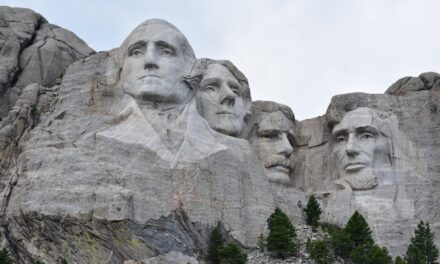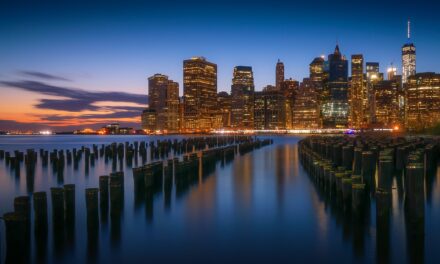Elizabeth, New Jersey, boasts a vibrant and diverse history that reflects its critical role in the development of the state and the nation.
From its founding in the colonial era to its modern-day place known as a bustling urban center, Elizabeth’s story is one of growth, resilience, and cultural richness.
Table of Contents
Colonial Beginnings
Founding and Early Settlement
Elizabeth was founded in 1664 and is the fourth oldest city in New Jersey.
Originally named “Elizabethtown” in honor of Lady Elizabeth Carteret, wife of Sir George Carteret, one of the two original proprietors of New Jersey, it served as the state’s first capital.
Role in Early American History
Elizabeth quickly became a central hub in early American history.
Elizabeth’s strategic location and bustling port made it an essential site for trade and transportation. It was also a significant site of conflict and strategic planning during the American Revolution. Due to its proximity to New York City and its status as a patriot stronghold, the city was the target of numerous British attacks.
Industrialization and Growth
19th Century Development
The 19th century brought industrialization, transforming Elizabeth into a vital manufacturing center.
The city became known for its production of textiles, machinery, and other goods, which attracted a diverse workforce and contributed to its rapid growth.
Transportation Advancements
The development of transportation networks, including the Morris Canal and the beginning and start of the Central Railroad of New Jersey, further spurred Elizabeth’s growth.
These advancements made the city a significant transportation hub, bringing about the movement of goods and people.
20th Century Transformation
Immigration and Cultural Diversity
Waves of immigrants arrived in Elizabeth in the early 20th century, contributing to its rich cultural mix.
Immigrants from Europe, Latin America, and other regions brought their traditions, enriching the city’s cultural and social landscape.
Economic Challenges and Resilience
Elizabeth faced economic challenges in the mid-20th century, including industrial decline and urban decay.
However, the city’s resilience shone through as it adapted to these changes. Efforts to revitalize the economy included developing new industries, improving infrastructure, and fostering a spirit of community engagement.
Modern Elizabeth
Economic Revitalization
Today, Elizabeth is a bustling urban center with a diversified economy.
The city has brought in new businesses and industries over the years, including retail, transportation, and logistics, contributing to its economic revival. The Jersey Gardens Mall, one of the largest outlet malls in the region, is a significant driver of local commerce.
Cultural and Recreational Offerings
Elizabeth offers a variety of cultural and recreational opportunities.
The city is home to numerous parks, historical sites, and cultural institutions that celebrate its rich heritage. Notable sites include Boxwood Hall, once the home of Elias Boudinot, and the Belcher-Ogden Mansion, both of which offer glimpses into the city’s storied past.
Fun Things to Do in Elizabeth
Visit Historical Sites
- Boxwood Hall: Explore the former residence of Elias Boudinot, an influential figure in early American history.
- Belcher-Ogden Mansion: Discover this historic house museum that showcases Elizabeth’s colonial and Revolutionary War history.
Enjoy Recreational Activities
- Warinanco Park: A beautiful park offering various recreational activities, including boating, picnicking, and sports.
- The Mills at Jersey Gardens: This expansive outlet mall offers a lot of retail choices and dining experiences.
Cultural Experiences
- The Ritz Theatre: Attend a performance at this wonderfully historic theater, which hosts a variety of shows and events.
- Elizabeth Public Library: Visit the library to explore its extensive collections and participate in community programs.
Q&A: Delving Deeper into Elizabeth’s Legacy
Q: What role did Elizabeth play during the American Revolution?
A: Elizabeth was a significant site for strategic planning and conflict during the American Revolution. British forces often targeted it due to its patriot stronghold and proximity to New York City.
Q: How did industrialization impact Elizabeth in the 19th century?
A: Industrialization transformed Elizabeth into a major manufacturing center, leading to rapid growth and attracting a diverse workforce.
Q: What cultural influences have shaped modern Elizabeth?
A: Elizabeth’s rich cultural diversity has been shaped by waves of many incoming immigrants from Europe, Latin America, and other regions, contributing to its vibrant community life.
Q: How has Elizabeth adapted to economic challenges in the mid-20th century?
A: Elizabeth showed resilience by diversifying its economy, developing new industries, and investing in infrastructure improvements.
Q: What are some key historical sites to visit in Elizabeth?
A: Notable historical sites include Boxwood Hall and the Belcher-Ogden Mansion, both of which offer insights into the city’s colonial and Revolutionary War history.
Q: What recreational activities are available in Elizabeth?
A: Warinanco Park offers a variety of recreational activities, while The Mills at Jersey Gardens provides extensive shopping and dining options.
Elizabeth, New Jersey’s Future
Elizabeth continues to grow and evolve, with a focus on sustainable development and community engagement.
The city’s rich and varied history and diverse culture provide a strong foundation for its future, making sure that it will stay a vibrant and dynamic area and place to live, work, and visit.
As Elizabeth looks to the future, it does so with a commitment to honoring its past while grabbing hold of new opportunities for growth and innovation.





